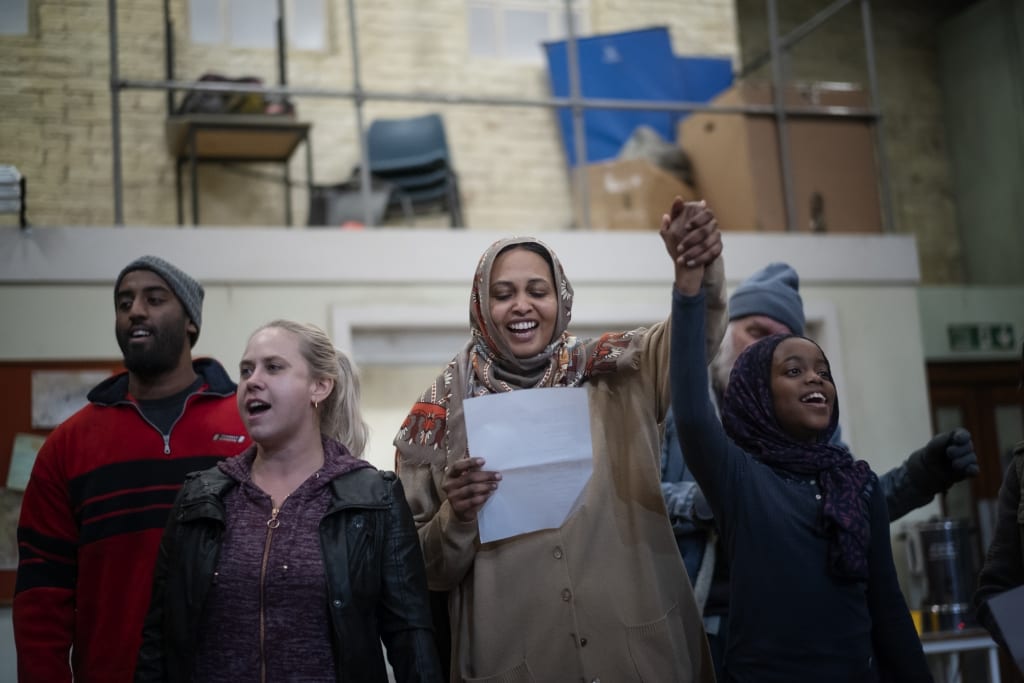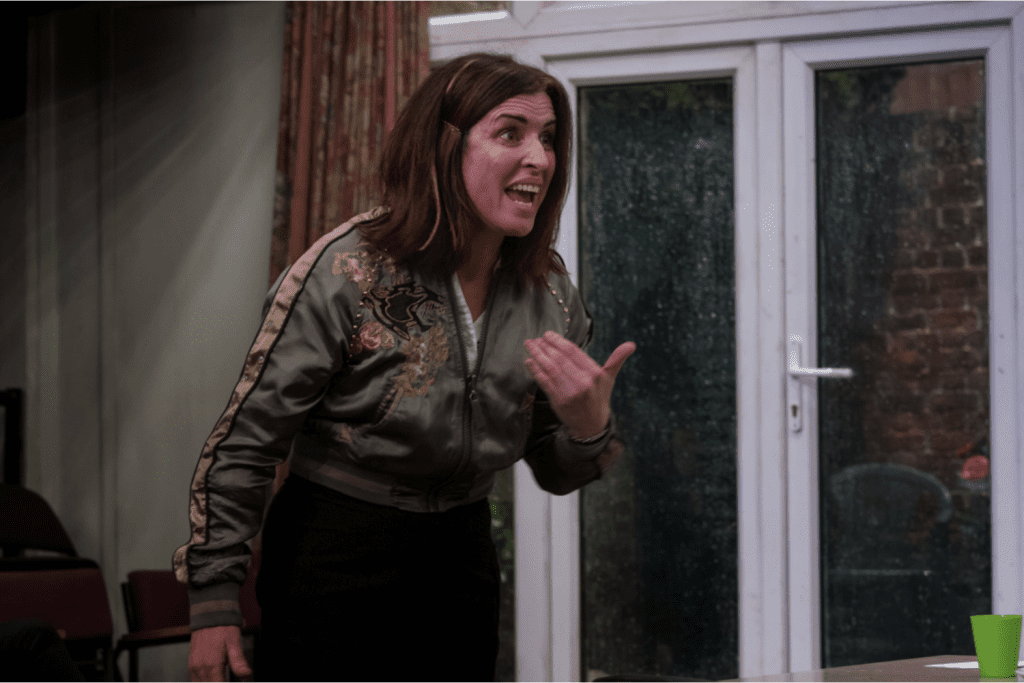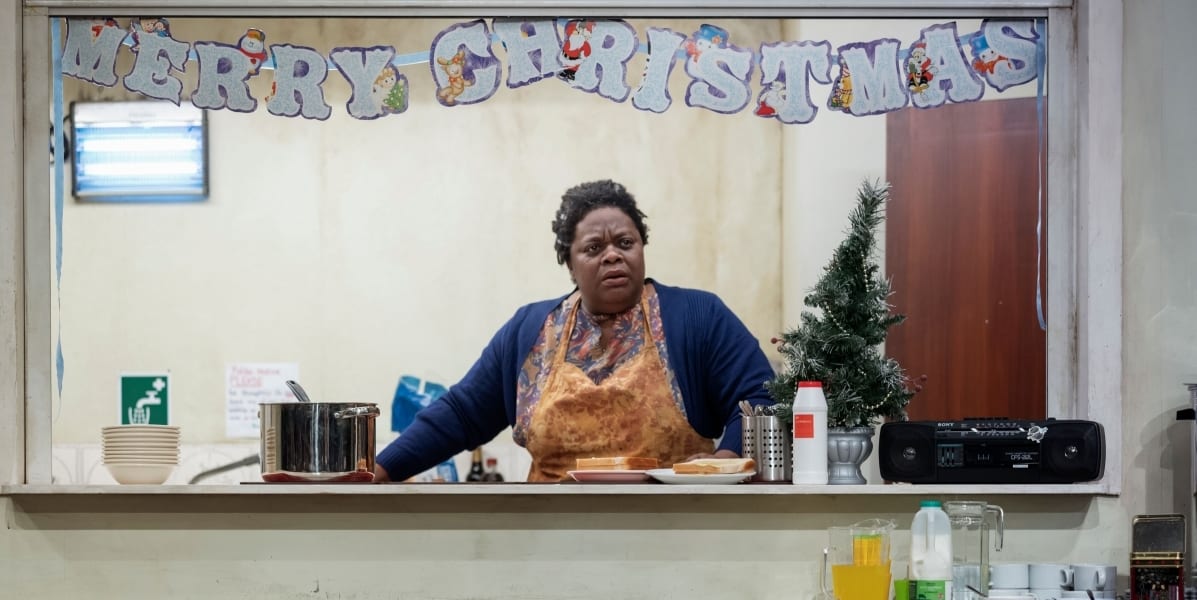In Alexander Zeldin’s new play Faith, Hope and Charity, the auditorium and stage are fused into one large hall, fully lit. A microcosm of society, where the characters on stage are at the margins of our society. A Community Centre, albeit a crumbling building, is a crucial focal point for the characters. It offers them the only hot meal of the day, and for some, it is also a shelter from loneliness. Yet, this vital amenity is under an impeding, threat of closure as its usefulness, fails to meet market criteria for the Council, so it is deemed to be an empty building and scheduled to be closed. Despite its miserable subject-matter, the play is full of warmth and humour. It is moving, without being sentimental and sobering without preaching.
In a building, where the roof leaks, the warmth comes from the matriarchal figure, Hazel, superbly performed by Cecilia Noble. She offers the only hot meal of the day for those attending the centre. Apart from food, social activity is on offer and encouraged by the bumbling Mason (Nick Holder) – a choir. These two stalwarts provide maternal and paternal support in their own limited way. Under the circumstances, they are the pillars of that deprived society.

Zeldin, very perceptively delineates each of the individuals attending the centre. None of the main characters is one-dimensional. They evolve and expose just enough of their past to attract empathy. The common denominator for this eclectic bunch is ‘need’. Apart from the need for food, which is prominent, there is a need for a respite from loneliness and emotional support. Oddly enough, the grim reality explored is not depressing but sobering and eye-opening. We think we know the plight of those at the margins of society, but actually, we don’t. Zeldin gives them names, faces and language.
There is an irony in the title of Zeldin’s play. Faith is not a religion or a belief. It is a name, of a child that has been taken into care and put out for adoption. The child’s mother, Beth (Susan Lynch), has little faith in Social Services and totally lost in the jungle of a legal procedure that orders her child to be wrested from her arms. The raw and deep pain Beth carries when realising she is losing her child and her sense of guilt, gnaws the social conscience of the viewer particularly when her teenage son, Marc (Bobby Stallwood) attempts to console her. The anguish on his face when she tries to blame him for the loss of his four years old sister, Faith, is heart-breaking. Bobby Stallwood‘s convincing expressions and body language transform the family tragedy into a visceral and tangible pain communicated to the audience.

In Act II, when Mason switches off the lights in the centre before closing it, the lights go off in the auditorium too, and a pale blueish light draws ones focus on Mason moving to close doors and there is a buildup of dramatic tension that peaks when Beth walks in. There is anticipation, of a physical encounter, particularly as she seems emotionally very vulnerable and in desperate need for affection. The scene, which initially seems artificially stitched at this point of the play actually explores something of Mason’s desperate desire to offer himself for a touch of love, while Beth exposes a moment of rational and sober instinct. They both are a product of failed foster homes.
Every character adds a different element to the total gathering. There are the Muslim mother and daughter (wearing a hijab) singing in the choir and participating in the Christmas celebrations, while the ponderous and grumpy old man, Bernard, humorously performed by Alan Williams, considers Christmas a ‘fascist ceremony”.
The set and costumes, designed by Natasha Jenkins, together with the bright lighting designed by Marc Williams, and superb acting all round, enhance the dramatic tension throughout the duration of the performance and its impact will stay with you hours well after you leave the theatre.

